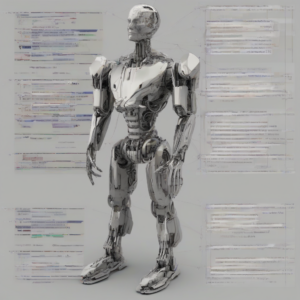Artificial Intelligence: Reshaping the Legal Landscape
The legal industry, traditionally characterized by meticulous detail and human expertise, is undergoing a significant transformation fueled by the rapid advancement of artificial intelligence (AI). AI’s impact extends far beyond mere automation, offering the potential to revolutionize how legal services are delivered, accessed, and understood. This exploration delves into the multifaceted role of AI in the legal industry, examining its applications, challenges, and implications for the future.
AI’s Current Applications in the Legal Field
- Legal Research: AI-powered tools are significantly accelerating legal research. These tools can sift through vast databases of case law, statutes, and regulations, identifying relevant precedents and providing concise summaries, significantly reducing the time and effort required by human lawyers. This allows lawyers to focus on strategic analysis and client interaction rather than laborious manual research.
- Due Diligence: The process of due diligence, crucial in mergers and acquisitions, real estate transactions, and other complex deals, is becoming significantly more efficient with AI. AI algorithms can analyze vast amounts of data, including financial records, contracts, and property documents, identifying potential risks and liabilities far more quickly and comprehensively than manual review.
- Contract Analysis and Review: AI is proving invaluable in contract analysis, automating the identification of key clauses, risk factors, and inconsistencies. This allows legal teams to review contracts more efficiently, reducing the risk of errors and ensuring compliance. AI can also assist in contract negotiation by identifying potential areas of disagreement and suggesting compromise solutions.
- Predictive Policing and Risk Assessment: While ethically complex, AI-powered tools are being used to predict the likelihood of recidivism in criminal justice, assess credit risk, and identify potential security threats. These applications, however, require careful consideration of bias and fairness.
- E-discovery and Litigation Support: The sheer volume of data involved in litigation makes e-discovery a resource-intensive process. AI can automate the identification and analysis of relevant electronic documents, reducing costs and improving efficiency. AI can also assist in identifying patterns and trends in data that might be missed by human review.
- Client Communication and Service: AI-powered chatbots are increasingly being used to handle routine client inquiries, providing instant responses and freeing up human lawyers to focus on more complex matters. This improves client service and increases accessibility to legal assistance.
- Legal Writing Assistance: AI tools can assist with legal writing by suggesting improvements in style, grammar, and clarity, ensuring that legal documents are concise and easy to understand. Some tools can even help draft simple legal documents, such as wills or contracts.
Challenges and Ethical Considerations
- Data Bias and Fairness: AI algorithms are only as good as the data they are trained on. If the data reflects existing biases, the AI system will perpetuate and even amplify those biases, leading to unfair or discriminatory outcomes. Ensuring data fairness and mitigating bias is a critical challenge.
- Data Security and Privacy: AI systems often require access to sensitive client data, raising concerns about data security and privacy. Protecting client confidentiality and complying with relevant data protection regulations is crucial.
- Job Displacement Concerns: The automation of certain legal tasks through AI raises concerns about potential job displacement for paralegals, legal assistants, and even some lawyers. However, many believe that AI will create new roles and opportunities, requiring lawyers to adapt and acquire new skills.
- Algorithmic Transparency and Explainability: Many AI algorithms, particularly deep learning models, are “black boxes,” making it difficult to understand how they arrive at their decisions. This lack of transparency can be problematic in legal contexts where accountability and justification are essential.
- Liability and Accountability: When AI systems make errors or provide inaccurate advice, determining liability can be challenging. Questions arise about the responsibility of the AI developer, the legal firm using the AI, and the individuals relying on its output.
- Regulation and Governance: The rapid development of AI in the legal industry necessitates clear regulatory frameworks to ensure responsible use, mitigate risks, and maintain ethical standards. The lack of comprehensive AI regulation poses a significant challenge.
- Access to Technology and Digital Divide: The benefits of AI in the legal field may not be equally accessible to all, potentially exacerbating existing inequalities in access to justice. Addressing the digital divide and ensuring equitable access to AI-powered legal tools is crucial.
The Future of AI in the Legal Industry
The integration of AI into the legal industry is still in its early stages, but its potential impact is undeniable. In the coming years, we can expect to see:
- Increased automation of routine tasks: More legal tasks will be automated, freeing up lawyers to focus on higher-value work requiring human judgment and creativity.
- Enhanced legal research and analysis: AI tools will become even more sophisticated, providing more accurate and insightful legal research and analysis.
- Improved client communication and service: AI-powered chatbots and virtual assistants will enhance client communication and provide more accessible legal services.
- Greater use of predictive analytics: AI will be increasingly used to predict litigation outcomes, assess risk, and improve decision-making in legal matters.
- Development of specialized AI tools: AI tools will be developed for specific legal areas, such as intellectual property, corporate law, and family law.
- Greater focus on ethical considerations and responsible AI: There will be a greater emphasis on addressing the ethical challenges of AI in the legal industry, including bias, fairness, and transparency.
- Evolution of legal education and training: Legal education and training programs will need to adapt to prepare lawyers for the changing landscape of the legal profession.
Conclusion (Omitted as per instructions)




